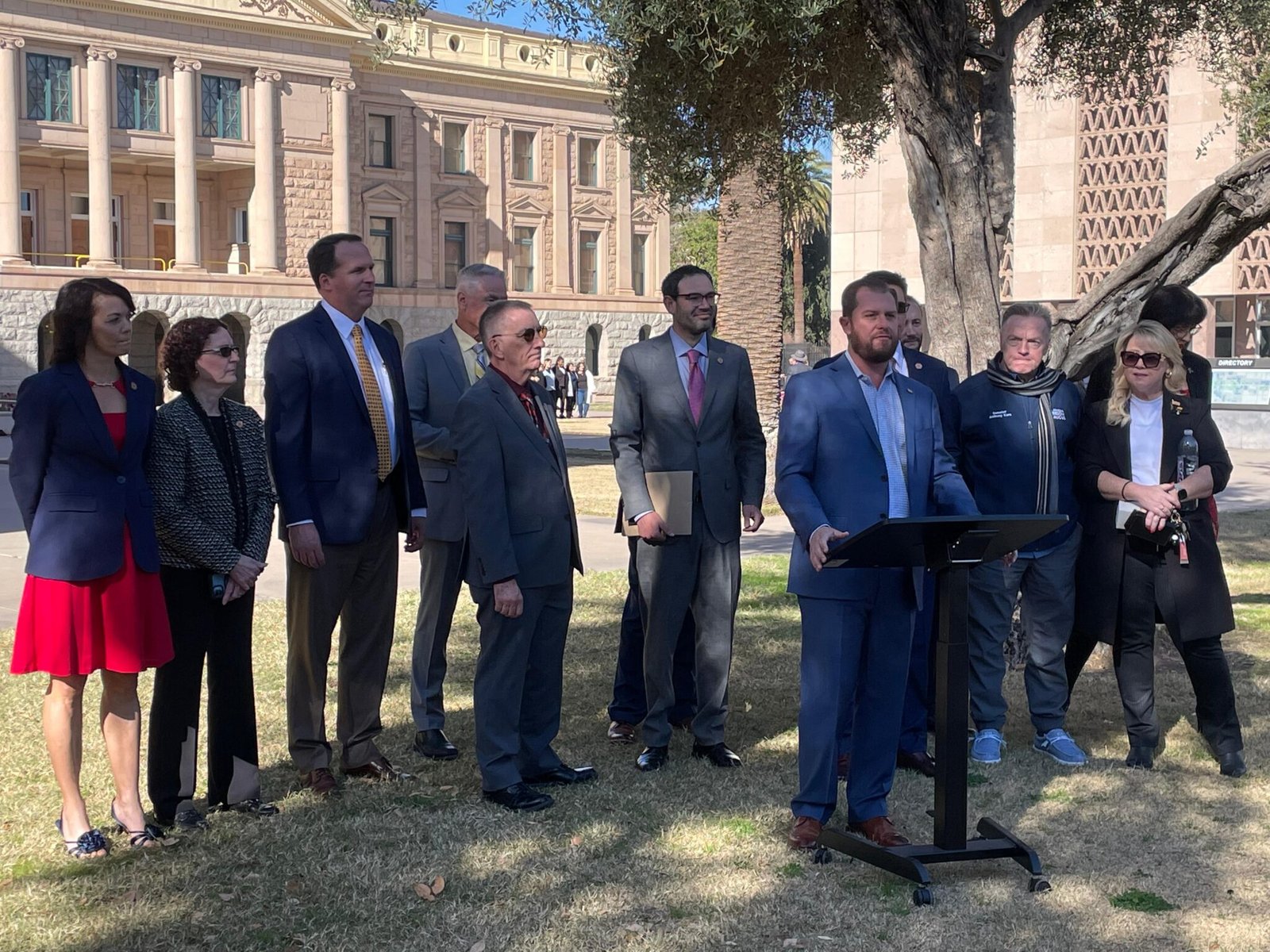2026 election
AZ Freedom Caucus Declares Defeating Dems in 2026 as Their Top Priority

The Arizona Freedom Caucus, known for its far-right stance, has kicked off the new legislative session by announcing its ambitious goal: to unseat the top three Democrats in the state during the upcoming elections. This commitment was made clear at a news conference held by the group on Monday.
“Our primary focus over the next two years will be to work towards removing Katie Hobbs, Kris Mayes, and Adrian Fontes from office in the 2026 election,” stated Sen. Jake Hoffman, R-Queen Creek, who chairs the caucus.
Recent electoral gains have fueled this aggressive strategy. In the 2024 general election, Arizona’s Republican majority strengthened its hold in both legislative chambers, gaining an additional House seat and two Senate seats, despite concerted efforts from Democrats.
Hoffman criticized Hobbs’ administration for what he described as detrimental policies, specifically referencing her 2023 executive order that facilitates gender-affirming surgeries for state employees and a pause on new construction projects in the Valley to conserve groundwater—a move that impacts his constituents.
The Freedom Caucus has taken a strong stance on anti-LGBTQ legislation, sponsoring bills that would criminalize drag performances and impose restrictions on transgender students.
Highlighting the governor’s record of vetoing Republican bills, Hoffman claimed that the results from the recent election demonstrate a clear desire among Arizona voters for conservative policies.
“The 2024 election culminated two demanding years of political conflict,” Hoffman remarked, asserting that the positive electoral outcomes affirm the success of the Republican agenda.
However, the results tell a multifaceted story. Voters not only expanded the Republican legislative presence but also turned down GOP candidate Kari Lake for the U.S. Senate and rejected the majority of the party’s proposals on the ballot.
Despite this divergence, Hoffman maintained that the approval of key measures, including a border security act and the defeat of ranked-choice voting, signs a mandate in favor of the party’s initiatives.
Proposition 314, which aims to enhance local law enforcement’s powers related to immigration, secured over 60% approval from voters. Conversely, the failed Proposition 140, designed to revamp primary elections, was viewed as a victory for conservatives who campaigned against it.
Although tensions with Hobbs’ administration are anticipated, with Hoffman overseeing the Senate committee responsible for her agency director nominations, the caucus’s alignment with the broader Republican objectives will be crucial. Hoffman pledged that the caucus would champion its conservative priorities while supporting the party’s agenda.
“At times, we will collaborate; at other times, we will need to guide them,” he noted.
The GOP maintains a fragile grasp on the legislature, necessitating bipartisan support to avert losing votes. Historically, the Freedom Caucus has utilized this political dynamic to advocate for its policy goals, complicating discussions around transportation taxes and education funding in past sessions.
Currently, the caucus’s objectives are in sync with those of the Republican majority. Hoffman asserted that the group would facilitate the enactment of the Secure the Border Act and enhance election security measures, all while supporting federal deportation efforts anticipated under the next Trump administration.


















